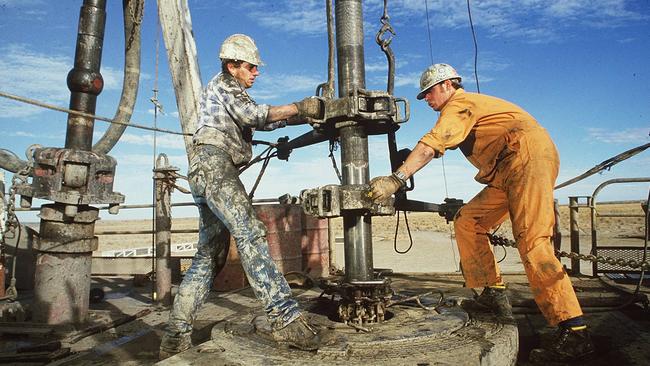
The $385m Warrego Energy has been the subject of a takeover tussle between billionaires Gina Rinehart and Kerry Stokes, after Strike Energy initially proposed a merger.
But some think it should be Strike, rather than Warrego, that bidders should be turning their attention to.
That’s because Strike is the operator of the Perth Basin gas project West Erregulla that it owns with Warrego, which is a passive investor.
On Wednesday, Strike, which has a $745m market value, emerged with a 19.9 per cent stake in Warrego via swaps in an effort to fend off suitors and maintain a seat at the table.
Rinehart’s Hancock Energy is offering 28c per share for Warrego after originally offering 23c in a takeover bid.
Beach Energy, which counts the Kerry Stokes-backed Seven as an investor, announced on December 2 it was offering 25c per share, plus the potential for additional consideration if Warrego’s Spanish assets are sold within 12 months of the deal.
Beach had five days of matching rights for the Hancock takeover offer that expires on December 12.
Before the approaches from Beach and Hancock, Strike had submitted a merger proposal in which Warrego shareholders would receive 0.7142 Strike shares for each Warrego share held, valuing the company at about 26c per share.
Strike’s shares on Wednesday closed at 36c, while Warrego closed at 30c.
The offer was a 40.6 per cent premium to Warrego’s share price at the time.
Working with Strike is Macquarie Capital, while Warrego is working with RBC.
Analysts at Ord Minnett have raised concerns about Beach in connection to the offer, compounding its recent history of operational issues and the threat of intervention in east coast gas markets.
Since September, Beach’s share price has risen 32 per cent, which is well above its peers, on the back of rising east coast gas prices.
The company’s average realised gas price has increased over 6 per cent per annum over the past five years to $8.50 a gigajoule in the most recent quarter.
Analysts at Jarden highlight the other risk to Beach is the collapse of engineering firm Clough, which has been working on its Waitsia Stage 2 delivery.
The Waitsia joint venture is equally owned by Mitsui and Beach, with Beach being the operator.
Jarden said Beach has been aware of the risk for several months and has contingency plans in
place, but the analysts saw increased risk of higher project costs and or start-up delay.
“We believe the Waitsia joint venture would prefer to spend more to complete the 250 terajoule a day gas plant than risk material delays,” Jarden said in a research note.
As a result, Jarden raised its project capital spending forecast by a further $100m to $900m to facilitate the completion of the processing facility.




To join the conversation, please log in. Don't have an account? Register
Join the conversation, you are commenting as Logout